US military has plenty of funds but suffers insufficient personnel
The US military sector is struggling to recruit sufficient personnel as the nation's youth are losing interest in joining the military. Consequently, the armed forces are experiencing large shortfalls in enlistment for various posts.
Figures are indicative of a lack of enthusiasm among job seekers to join the army. Enlistment figures have not been this low since just after the US war in Vietnam ended in 1975.
However, the issue is not just related to a lack of interest since less than a quarter of young American adults are actually physically fit and many others have criminal records disqualifying from enlistment.
With interest in joining the army dwindling throughout the nation and its shortfalls in enlistment the US military is trying hard to create incentives to hire the staff necessary for its many operations.
The US military has a large presence across the globe, considering American adventurism worldwide, from the Middle East to the South China Sea and Eastern Europe.
American forces are present to support allies, take on Chinese and Russian spheres of influence, and act like the so called leader of the free world.
In fact, according to official estimates, between 160,000 and 180,000 American active duty personnel are stationed outside the United States and its territories to pursue the US Global Agenda.
After all, a lot of personnel are needed to properly run the roughly 750 overseas US military bases in 80 different countries.
What has given rise to the present lack of interest among American youth in pursuing a career in the military?
I think the reason is because the US has looked bad on the world stage in recent military interventions, you know, they invaded Iraq; the war was based on lies resulting in a catastrophe for the Iraqi people. It was not a source of pride for the American people.
Similarly, in Afghanistan, the US fought there for 20 years and ultimately, the Taliban took over.
And then there are these smaller scale military interventions, like in Libya and Syria that have caused us more chaos, disaster for those countries, and not really yielded any success for the United States. And again, the motive is probably this crass economic materialism.
So I mean, why would a young person want to join the military if they're going to be sent into a war, you know, miles and miles from their home? (A war) that's not for self defense, that's based on lies, that's through the greed of oil companies.
Jeremy Kuzmarov, Covert Action Magazine, Editor
Multiple US military and defense officials have recently come forward to leak the news. Every branch of the American military is struggling to meet its fiscal year 2022 recruiting goals.
US media investigations also corroborate the fact that there is a record low percentage of young Americans eligible to serve, and willing to consider it.
Well, I think Americans are ingrained from a young age to worship, worship the flag and, you know, they say the Pledge of Allegiance in school and they're kind of conditioned to be very patriotic. I mean, that's not necessarily a bad thing. I mean, there are positive virtues of the, of the United States. The US Constitution has some good principles including, like, freedom of speech, freedom of religion.
But I think, again, increasingly, Americans are weary of the excessive military spending, and the you know, these foreign adventures. I mean, America also, you know, was forged as a, you know, in rebellion against an empire and that's why the US never announces itself as an empire.
Jeremy Kuzmarov, Covert Action Magazine, Editor
The Pentagon's top leaders are therefore scrambling for new methods to find new recruits to fill out the ranks. However, the long drought for military recruiting does not appear to be abating in the near future.
How is the US Army's recruitment crisis panning out considering the fact it comes to almost 40% of its recruitment goals?
Well, so I think it's pretty clear that there's a clear divide in the ruling class in America with some more realistic elements of the defense system, trying to make it clear that the US is not equipped for a war, particularly a ground war.
For example, retired Army colonel and former Adviser to the Secretary of Defense, Douglas McGregor, was ringing the alarm bell for months that the US Army doesn't have the numbers, the training, or the equipment, to be prepared for a war.
So you know, I think it's becoming clear that the US Army isn't going to be able to meet their goal. It's just going to be become clearer and more and more ways that we are not equipped for any sort of all out war.
We're going to have to readjust our expectations of our military and the government will need to start stop writing checks that the military won't be able to cash.
Susan Banaszewski, Activist, Center for Political Innovation
Officially, the US military has been deployed to more than 200 countries and territories within the past seven years, from South Korea, Japan, Vietnam and West Germany in the earlier days, to Bahrain, Qatar, Iraq, Syria and Yemen. Those forces have been covering vast time zones to advance US interests in different regions.
While I am an American and I don't have intimate knowledge of how other nations view the US military, I think it would likely depend on that country's relation to the US and the international order.
Because as we can see right now, in the NATO and US proxy war against Russia and Ukraine, many European nations seem to see the US military as the defense force for the West, or at least the US military funding.
But, on the other hand, for much of the world, most of the world who's not the direct ally of the US and not European, I would view the presence of US troops and the threat that the US Army could come to your country as a constant threat and reminder that the US does not hesitate to pursue regime change, or other types of operations in their countries [sic].
Susan Banaszewski, Activist, Center for Political Innovation
What implications does the erosion of trust and interest in the US military have for America as a nation?
Well, I think there's a lot of anger in the country at the way the country had been governed. You know, the country has been misgoverned for at least two or three decades.
I mean, certainly since the war on terror started, you know, the US government invested trillions of dollars in the military and wars that (have) not yielded any positive results for almost anybody.
So there's lots of anger towards the government or the elites in Washington.
Jeremy Kuzmarov, Covert Action Magazine, Editor
An increasing number of young men and women are disqualified from joining the military ranks due to obesity, drug use, or criminal records. Indeed, only 23% of Americans aged 17 to 24 are qualified to serve without a waiver to join, which is down from 29% in recent years.
Only about 30% of young Americans qualify for the military, due to their health, mental health, drug use or if they have a legal history [sic].
Susan Banaszewski, Activist, Center for Political Innovation
And public attitudes are also turning dramatically against the pursuit of a profession in the military.
The emotional and psychological problems caused by serving in the military are among factors shifting public opinion about a job in the US military.
The government invests billions of dollars every year in public relations to create a kind of cult of military and there's an office in the Pentagon devoted to Hollywood and to ensuring that scripts valorize the US military and glorify the military, and that's a very powerful propaganda tool because it's insidious.
People go to the movies for entertainment, they don't think they're watching propaganda or political film, but really they are being conditioned and brainwashed to valorize military.
So that does have an impact. And they invest millions of dollars on recruitment in high schools and also in video games that kind of condition and indoctrinate youth.
Jeremy Kuzmarov, Covert Action Magazine, Editor
Parents usually encourage their children to go to college before selecting any career, particularly in the army, contributing to the recruitment stumbles even further.
It is becoming increasingly difficult for top military leaders to change the minds of the parents who work hard all their lives, and dream of seeing their kids in college and, consequently, in respectable positions.
I think it shows that Americans are starting to see the distinction between the US Empire and military apparatus and the real United States where we live and work. That has provided Americans with some temporal benefits as our economy profits off the exploitation of other countries.
But ultimately, it has created an inflated bureaucracy that isn't helping out the American people at this point in time, as we can see when we're sending millions and billions to Ukraine to Israel. Well, we don't even have health care at home.
Susan Banaszewski, Activist, Center for Political Innovation
The US Army study in 2021 found that 75% of Americans aged 16 to 28 know little or nothing about how the army works showing no trust, not just in the army, but in all of American institutions.
How do foreign nations perceive the US Army's role in the international order considering the atrocities that soldiers and military contractors have committed throughout the world?
The US ... really had a shameful record over the past two generation. Well, certainly, I mean, I think in the Vietnam era, you know, I think in those years, the US military developed a horrible reputation.
Because incidents like the Mỹ Lai massacre were exposed, before most of the world, how the US really behaves when they invade other countries, which is like other invaders, you know.
Americans promoted this idea of American exceptionalism, that America was different from other world powers and empires and behaves more civilly.
But then that myth was punctured with incidents like the Mỹ Lai massacre in Vietnam, and then the Abu Ghraib incident in Iraq, and as you say, other atrocities that have been exposed and other morally bankrupt interventions, where the pretext behind the war has been shown to be fragile.
Jeremy Kuzmarov, Covert Action Magazine, Editor
The US military sector's solution to the recent shortfalls has been to spend even more money to lure young men and women into the army.
Thousands of dollars are being spent to persuade young adults to get enlisted and even more, cash up to $35,000 is allocated to recruits in certain sectors where shortfalls are more serious.
Yet as anti war sentiments grow across the United States and the rest of the world, recruiting fit soldiers appears to be a grave challenge for the Pentagon.
The experiences and memories of war veterans from battlefields in Afghanistan, Iraq and Vietnam, are also playing a key role in dissuading the younger generation from pursuing a career in the military.
While the US media and government, you know, puts out some constant propaganda to justify our foreign interventions. At this point it's kind of just putting lipstick on a pig.
We, the American people, witnessed the humiliation of America's exit from Afghanistan, The catastrophe of the so called War on Terror. You know, it might not be entirely what ... everyone might not readily admit to that.
The claim of WMDs was a lie but many do realize that and know that they were fooled for many years.
Susan Banaszewski, Activist, Center for Political Innovation
With just over three months left in the fiscal year 2022, the US Army has reportedly fulfilled just around 40% of its enlisted recruiting mission, which represents a military fiasco in need of urgent attention from the highest ranking officials.
It is not clear yet whether monetary incentives are enough to encourage young Americans to consider a military career.
I think the veneer is running more and more thin with recent disasters, especially as that impacts the US economy more and more, and the price of oil goes up as the new geopolitical political landscape shifts, as China's supersede the US economically, many Americans question policies adopted by their government and are demanding change.
And if the government doesn't respond in a positive way, or constructive way, you're going to see more and more incidents like the January 6 Riot where there are riots on the Capitol and street fights surrounding elections. Angry masses were either descending on the Capitol or turning on each other. So I think it's a dangerous environment right now in the United States.
Jeremy Kuzmarov, Covert Action Magazine, Editor
The US failure to recruit young adults is part of a bigger problem in America which involves weakening institutions and all the internal sectors as well as overseas malfunctioning of the US as a superpower.
Considering the US Army's global performance, how much does pursuing a career in the military contribute to the sense of pride and patriotism for Americans as a nation?
Well, I believe that Americans are largely patriotic and exceptionalist toward America and view the US as the superior nation to most, and many still believe that we have the most freedom, that we have the best basis of our government.
But this patriotism among Americans, I don't think is any longer rooted in the US Army's recent, especially global performance, especially for young people. I think, older generations they might still feel pride and what they saw as Cold War victories against communism or totalitarianism.
But young people, we've only witnessed the catastrophe of the wars on Iraq and Afghanistan. And they, so the US government and media they rely on creating our patriotism and pride in our nation, and in our military, with propaganda.
Susan Banaszewski, Activist, Center for Political Innovation
With the war in Ukraine and the US attempts to bolster NATO, to take on Russia's influence in Eastern Europe, the need for a stronger military is felt more than ever in recent history. The reported shortfall in the army, however, could present yet another obstacle for the US military forces to function overseas.
Well, the US has found a way to wage wars kind of on the cheap, you know relying more on drones and special forces, high tech bombing, armaments or wars by proxy, like we see in Ukraine, where the US essentially is a cold belligerent in the war, shipping huge amount of weaponry to the Ukrainians and providing special forces, but they're not going to send US ground troops.
So I think that's one way to offset the lower recruitment and the lack of support in middle to middle upper class, and upper class people, in America are not sending their kids into the military to fight these wars.
Jeremy Kuzmarov, Covert Action Magazine, Editor
The dark history of US military brutality appears to be ultimately portrayed among the masses in the United States. But generally speaking, how is the reputation of US military forces evaluated at home?
I think that those propaganda campaigns, like Top Gun, I think they have, they might get some people excited, temporarily, but I really think it's fleeting. It's not real, really, a replacement for, you know, a real good, good foreign policy.
But I do think that Americans, generally, respect and admire those who serve in the military, and would be reluctant to identify any individuals even, you know, officers or generals in the military, as anything but, you know, respectable servants who sacrifice for America, and that the US military is still seen as deserving support.
But there is, absolutely, distrust of the military industrial complex and the politicians who lie to send our kids to war and war profiteers, I don't think that any of that is out of the view of ordinary Americans.
Susan Banaszewski, Activist, Center for Political Innovation
Skilled, relevant and innovative talents are headed in the opposite direction by applying for jobs in the private sector instead.
In the meanwhile, the Pentagon's top leaders have no other solution than enticing prospective recruits by pitching the benefits of enlisting.
VIDEO | Venezuelans demonstrate in support of kidnapped president Nicolas Maduro
Venezuela’s independence, sovereignty ‘non-negotiable’: Ambassador to Iran
Kidnapped Maduro to appear in New York court with protests expected outside
Iran’s Judiciary chief warns rioters will face firm action without leniency
Monitor group: Israeli forces, settlers carried out nearly 24,000 attacks in 2025
VIDEO | American lawlessness: This time in Venezuela
Explainer: Why the United States incarcerates more people than any other country
VIDEO | Iranian security forces arrest Mossad agent operating among rioters


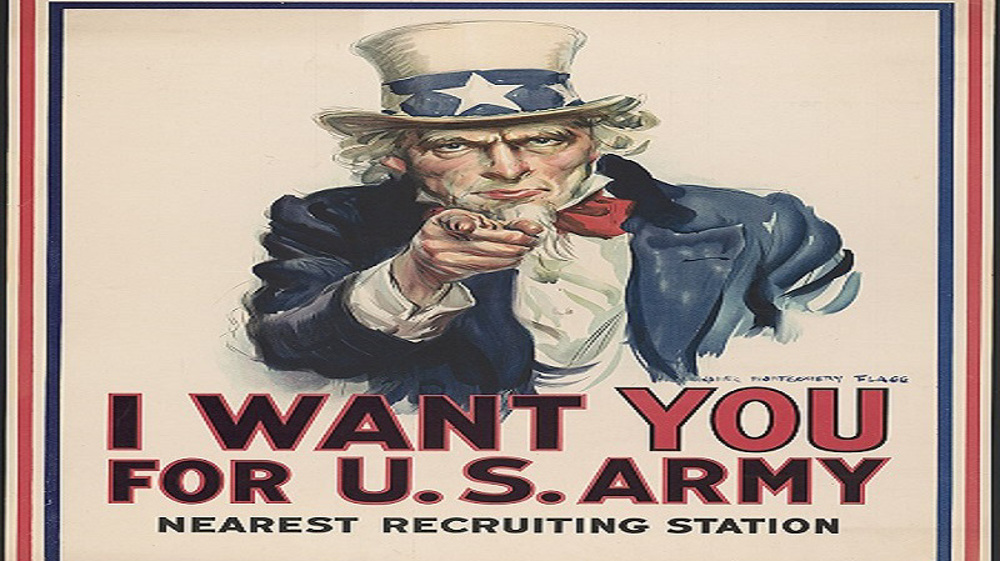
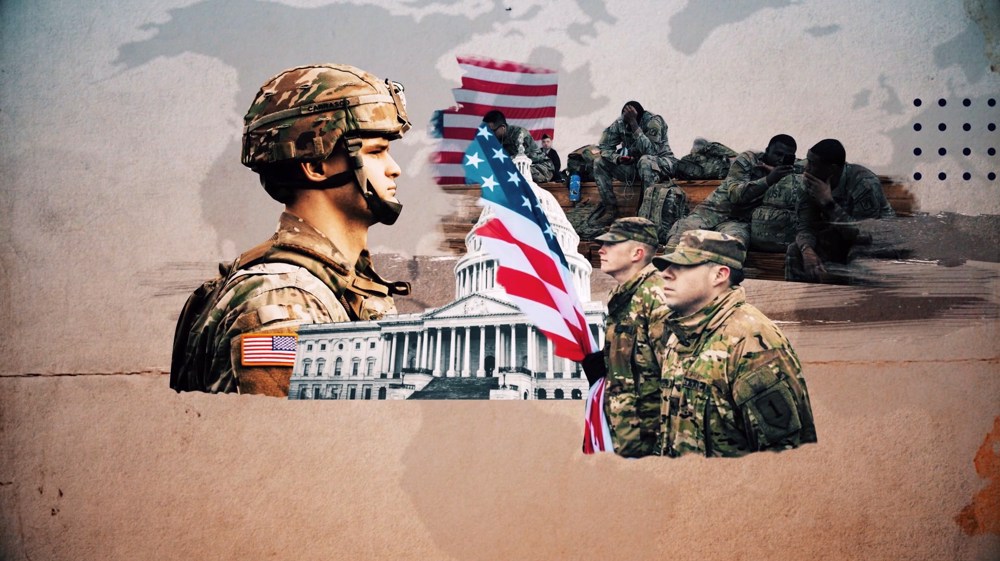
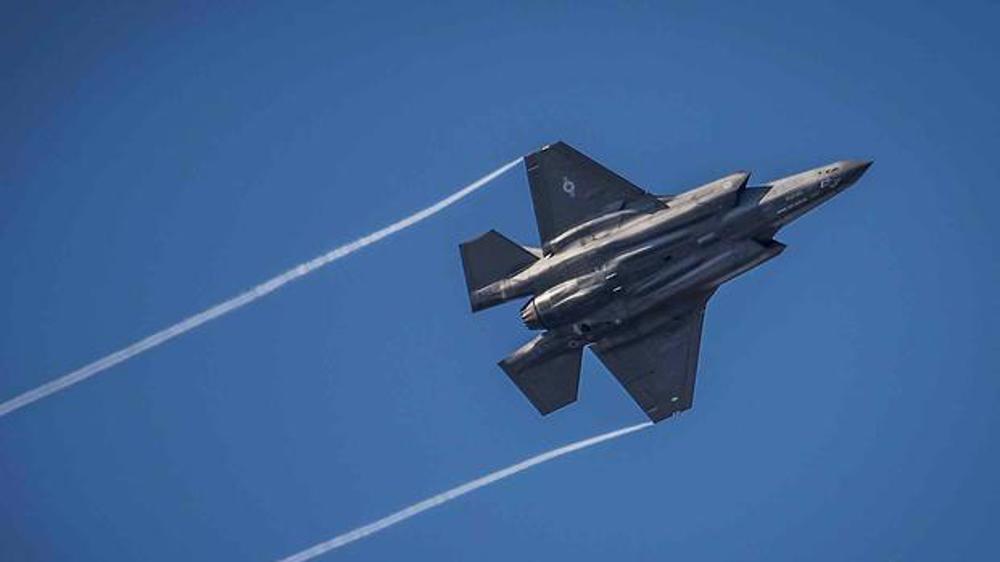
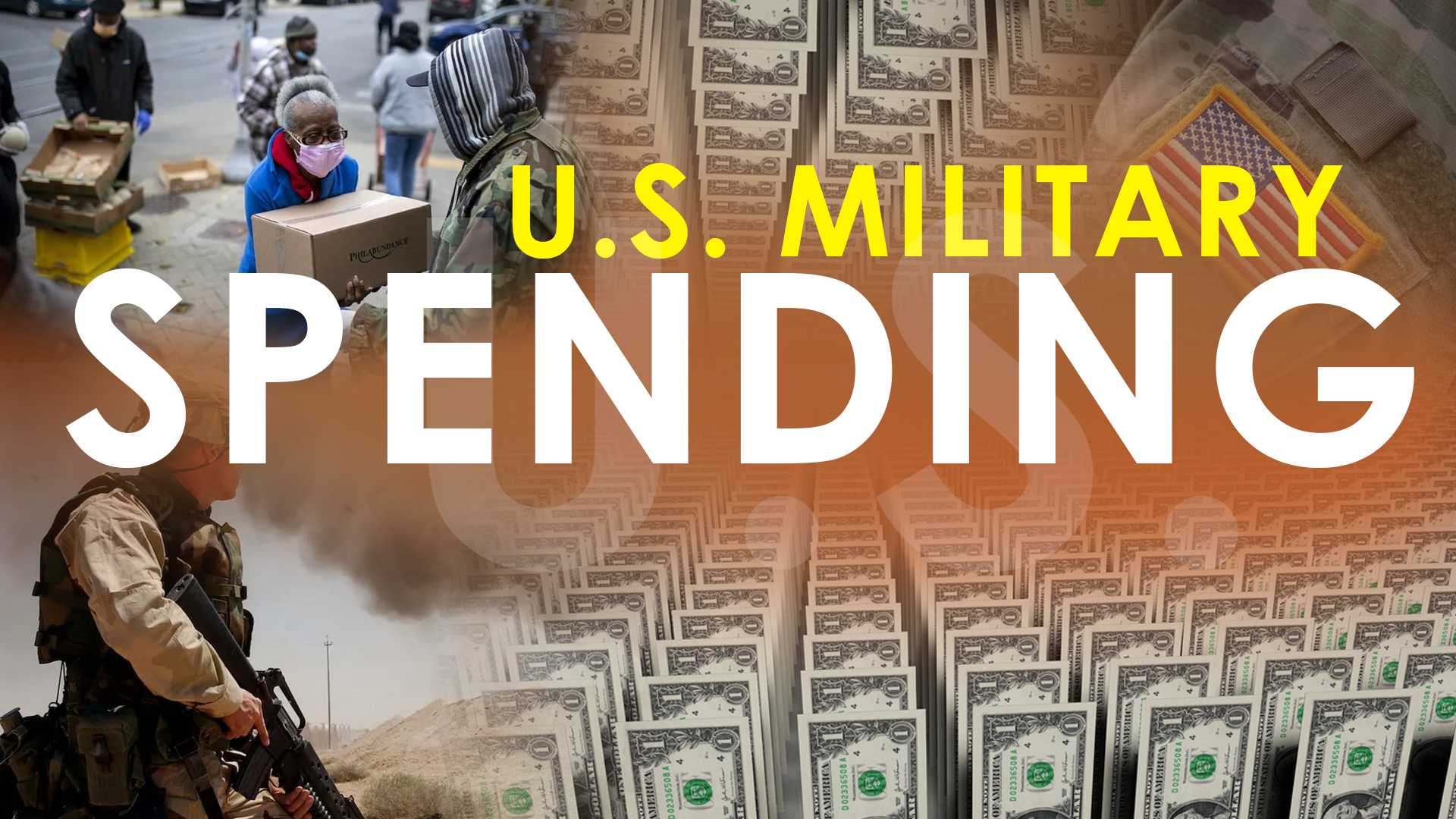
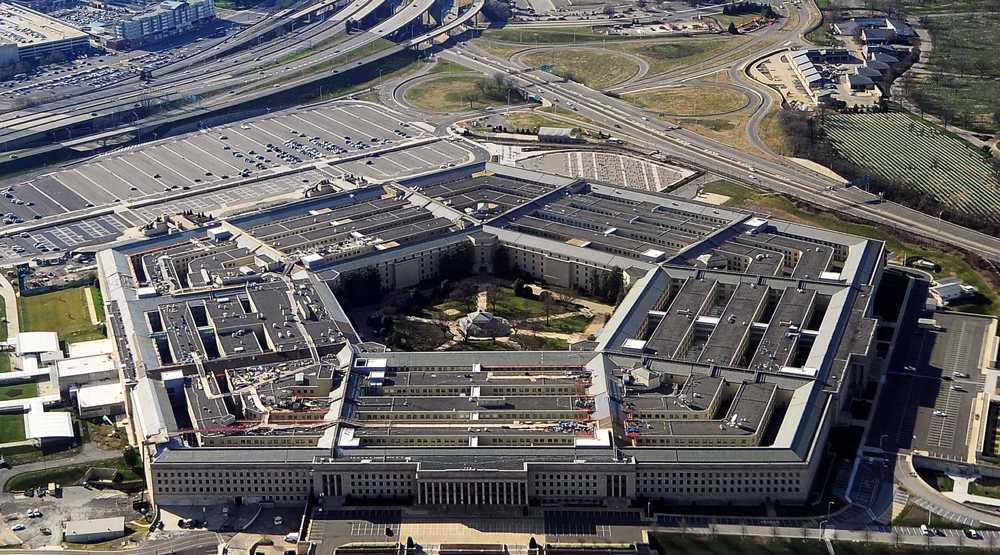
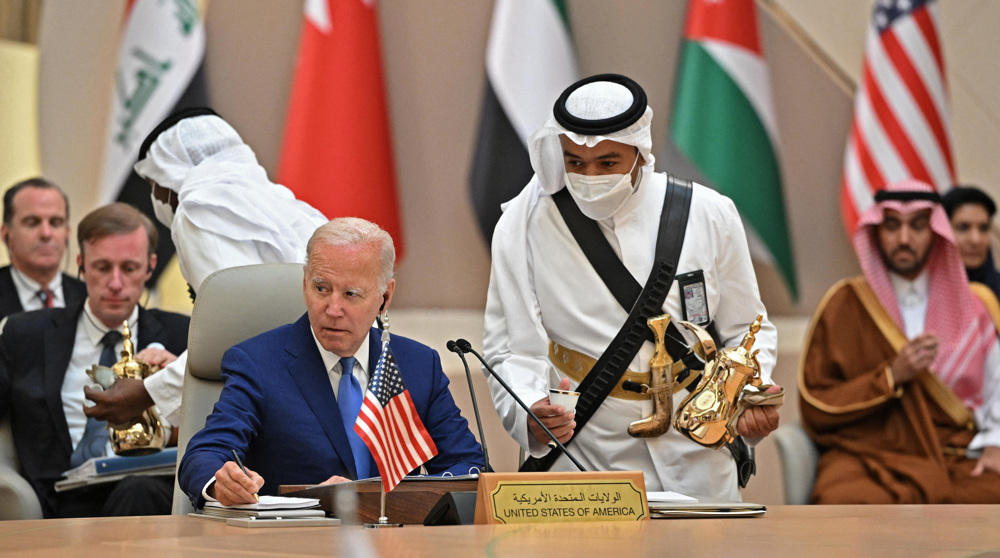

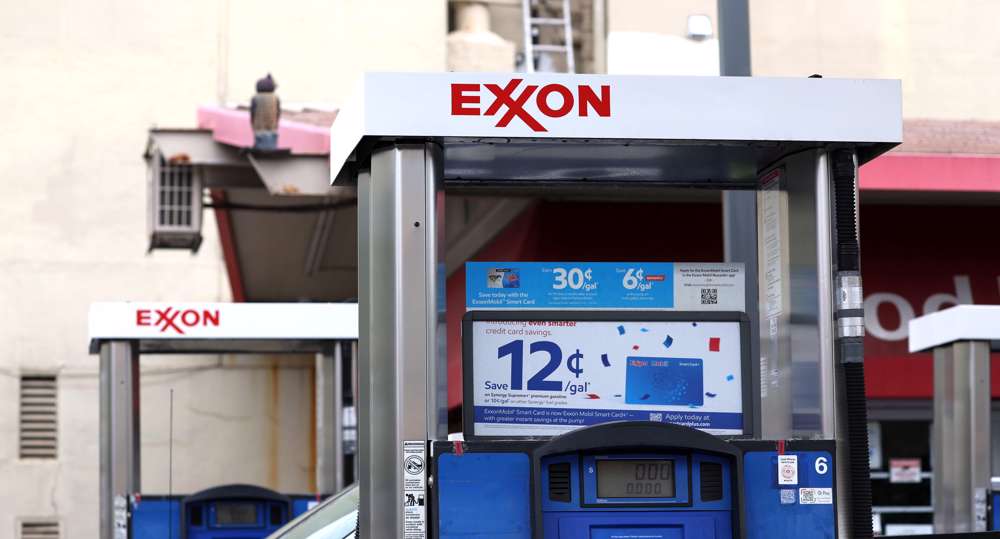
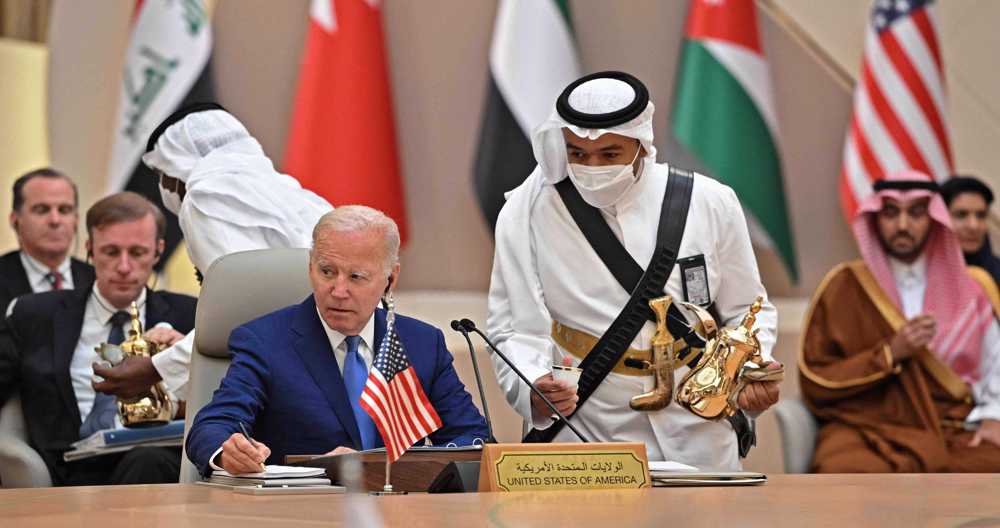


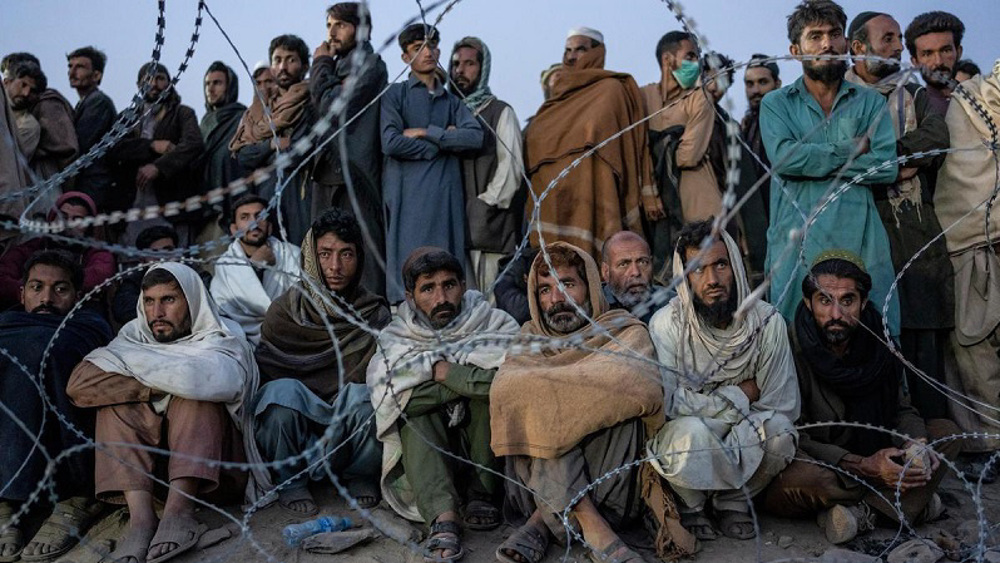





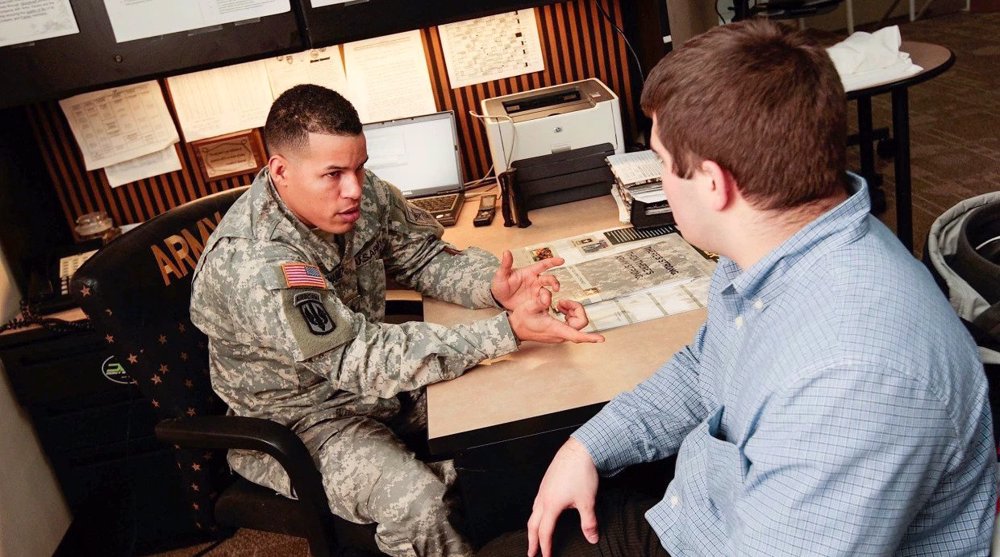
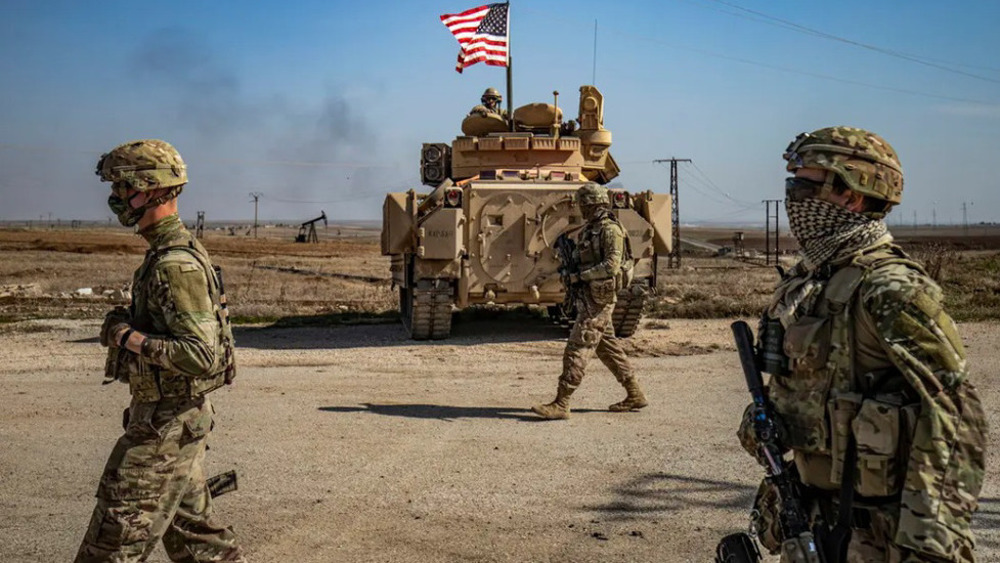
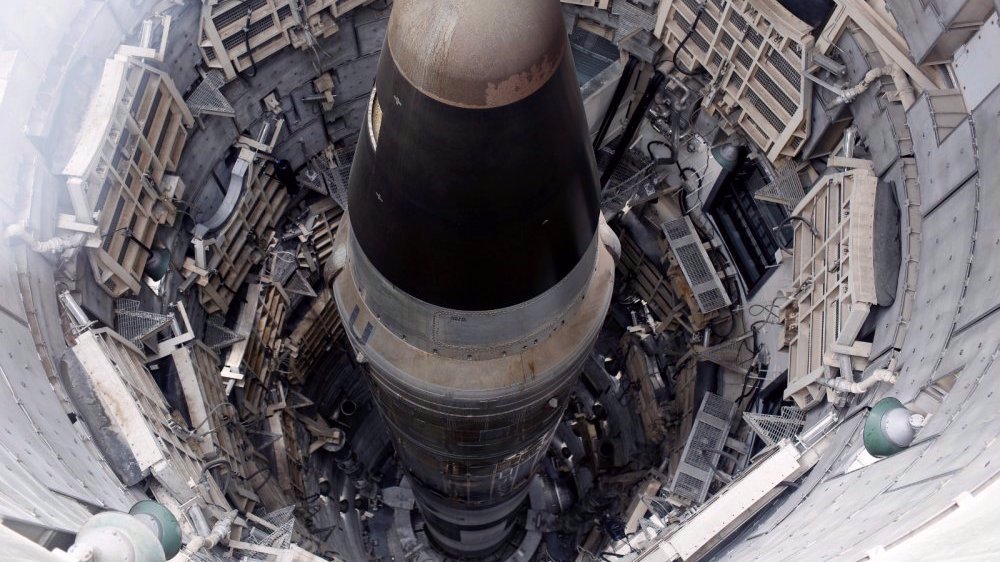

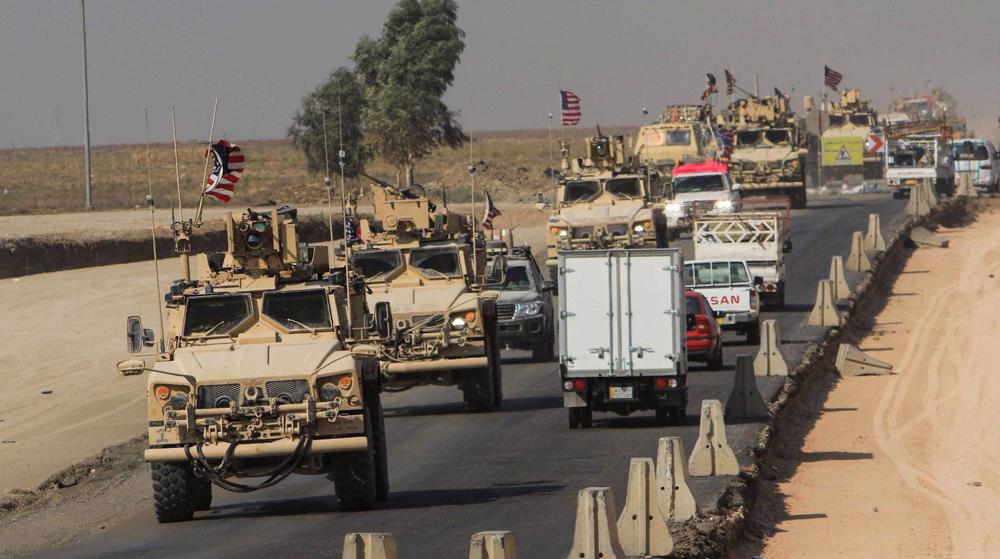
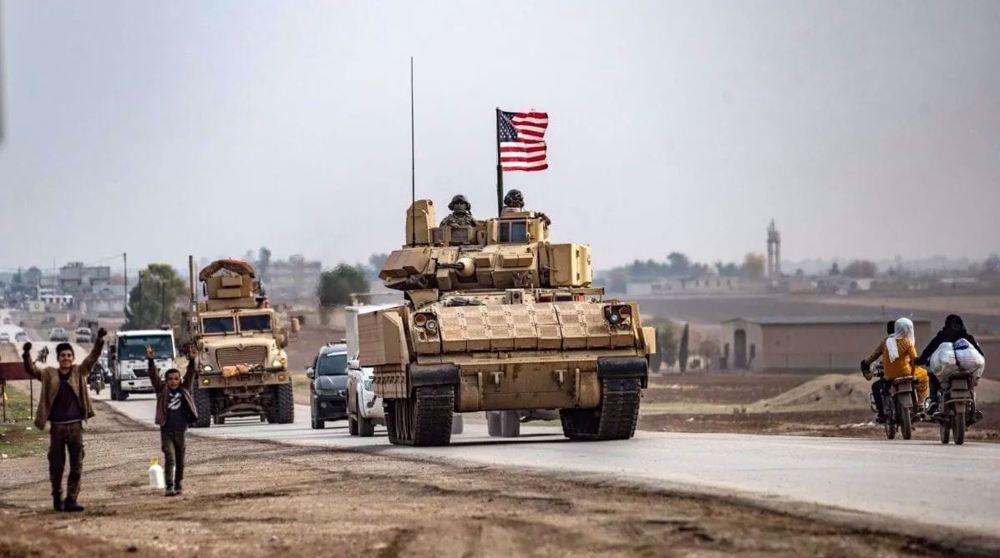
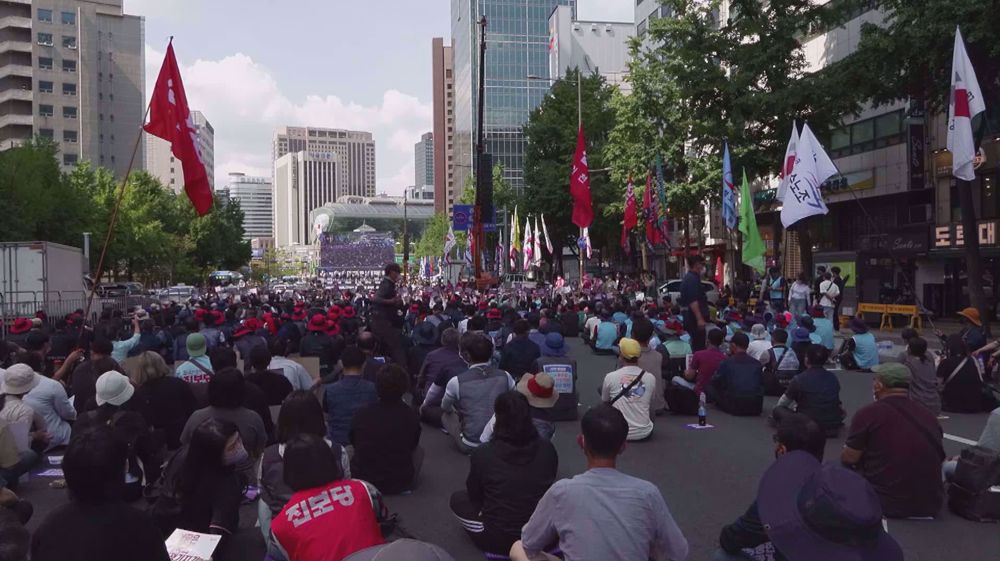

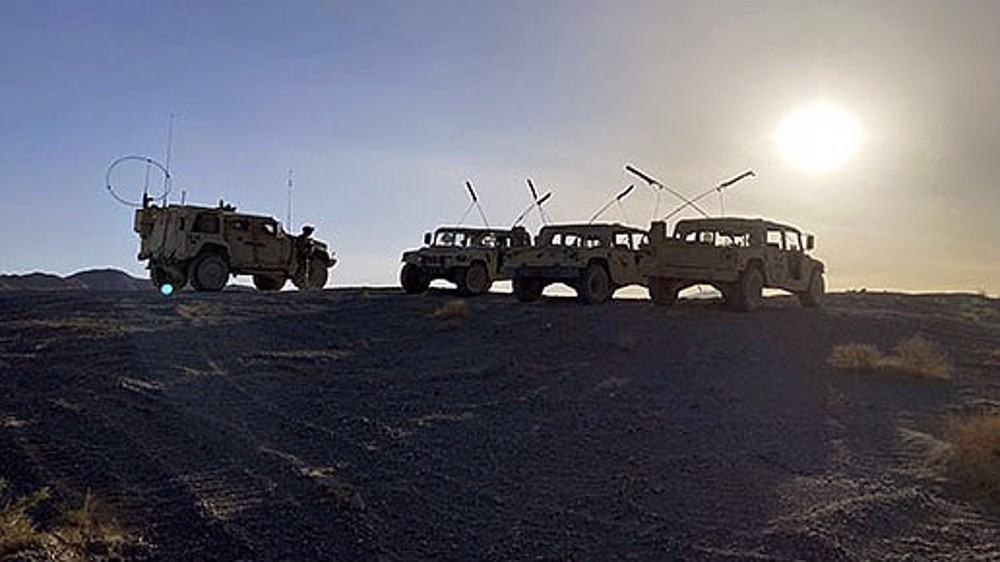

 This makes it easy to access the Press TV website
This makes it easy to access the Press TV website